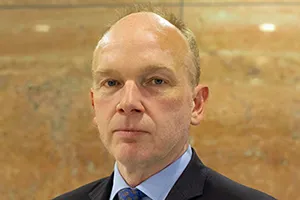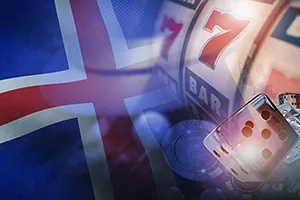 Maarten Haijer, Secretary General of the European Gaming and Betting Association (EGBA), has recently expressed an opinion, published on Visir, an Icelandic online news media, concerning the liberalization of the country’s gambling market. Similar to Denmark and Sweden, and the majority of European countries, the Nordic island country should favor a competitive gaming environment over a monopoly-based one, according to him.
Maarten Haijer, Secretary General of the European Gaming and Betting Association (EGBA), has recently expressed an opinion, published on Visir, an Icelandic online news media, concerning the liberalization of the country’s gambling market. Similar to Denmark and Sweden, and the majority of European countries, the Nordic island country should favor a competitive gaming environment over a monopoly-based one, according to him.
The CEO of the Brussels-based trade association representing the leading online gambling operators in Europe highlighted that “across the continent, countries have phased out the narrow monopoly of lottery and betting companies and introduced a licensing system that is open to responsible service companies that meet strict conditions.”
Under the current legal and regulatory environment, there are six companies licensed to offer gambling services to Icelandic citizens, while the black market share exceeds ISK20 billion ($146 million).
As Maarten Haijer highlighted, monopoly-based gambling markets tended to limit consumer choice and thus “create more problems than they solve.” Since online gambling was “a price-driven market”, consumers naturally wished to extract as much value as possible from their gambling. In their search for more competitive odds, they are led to black market operators that provide questionable player protections and unsafe environment.
Therefore, the Secretary General of the trade association has unequivocally urged the Icelandic authorities “to reshuffle the deck on the country’s gaming policy by replacing its monopoly system with a licensing framework for online gambling.” In his opinion, gambling regulations in Iceland were “stuck in the past” and by changing its approach to gambling regulation, the country could “move into modern times.”
Iceland Could Follow The Example Set by Denmark and Sweden
 Iceland could adopt an approach to the liberalization of the gambling market, similar to the one of Denmark and Sweden.
Iceland could adopt an approach to the liberalization of the gambling market, similar to the one of Denmark and Sweden.
Contrary to popular belief, the implementation of a competitive gambling market was not about exposing more people to gambling, Maarten Haijer said. A well-regulated, open licensing regime ensured more protections for players. Mr. Haijer backed his statement with the example set by Denmark and Sweden, which abandoned the monopoly-based models of gambling legislation in 2012 and 2019, respectively.
He noted that both countries had experienced the advantages of the open market, including more player protections, and had not seen an increase in problem gambling. The financial benefits were “unquestionable” since an open market system generated more tax revenue for the government.
While highly successful in terms of player channelization and protections, the implementation of a new licensing system does not come without its challenges. Iceland could achieve comparable results as long as there is “political will and courage to change direction.” Mr. Haijer explained that although inevitable, these challenges were manageable, as demonstrated by almost all European countries.